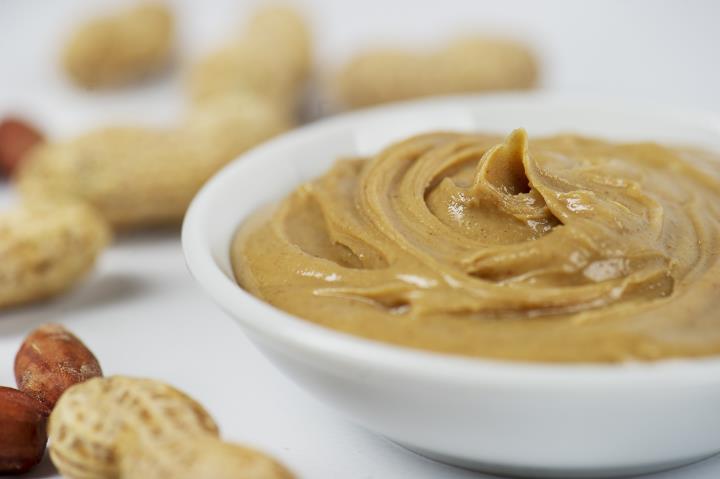Oct 31, 2024

The Movember movement is helping men grow their courage, not just their facial hair. Studies have found that men often don't talk about their health because of cultural attitudes, fear or pride. This can negatively impact their health. The Movember® movement encourages men to take an active role in their health by growing a mustache for the month of November. Since its inception in 2003 it has funded more than 1,320 men’s health projects around the world, including changing the way health services reach and support men.
Travis Garone and Luke Slattery devised the idea for Movember® in their native city of Melbourne, Australia. Since mustaches had all but disappeared from men's grooming trends at the time, the two friends felt that growing a mustache would be a way to spark conversation. Thirty men took up the challenge to grow mustaches and promote men's health in the initial Movember® effort. Today, Movember® has expanded exponentially and internationally.
The main focus of Movember® - beyond growing a mustache - involves significant issues affecting men: mental health and suicide prevention, prostate cancer and testicular cancer. Participants are urged to be more physically active and host fundraising events to raise awareness about the effect these issues have on men.
Movember® is a chance for men to make doctor's appointments and discuss key issues like prostate health. In fact, the Prostate Cancer Foundation is an official beneficiary partner with Movember® for their U.S. campaign. To date, Movember® has donated $56 million to support innovative prostate cancer research.

The National Institutes of Health reports that incidences of Alzheimer's disease and other dementia increased by roughly 148 percent between 1990 and 2019. Currently, more than 55 million people across the globe are living with dementia.
Alzheimer's disease (AD) is perhaps the most widely recognized form of dementia. But even those who are familiar with AD may not know the answers to common questions about it.
Are Alzheimer's and Dementia one and the same?
No. Dementia is an umbrella term that refers to various conditions that the National Institute on Aging notes affect a person's ability to think, reason and remember. AD is merely one type of dementia.
What distinguishes Alzheimer's disease from other forms of Dementia?
The David Geffen School of Medicine at the University of California, Los Angeles reports that Alzheimer's is characterized by progressive memory loss and cognitive decline. In addition, AD affects the part of the brain associated with learning first, so individuals with the condition often exhibit difficulty remembering in the early stages of the disease.
Are there other early signs of AD?
The NIA notes there are some additional early signs of AD, but also points out that different people exhibit different early signs of the disease. Some early signs may include:
· Decline in ability to find the right words
· Vision/spatial issues
· Mild cognitive impairment: This can include losing things often, forgetting to go to appointments or other events, and struggling to come up with words compared to people in the same age group.
What causes Alzheimer's disease?
The causes of Alzheimer's remain a mystery, though research is ongoing and medical professionals have connected some dots. For example, the NIA notes that the presence of the genetic condition Down syndrome increases a person's risk of developing AD. That supports the notion that some cases of AD are caused by a genetic component, which scientists believe may also explain cases of early-onset dementia. The NIA notes that research also indicates late-onset Alzheimer's, which is typically diagnosed in individuals in their mid-60s, is linked to age-related changes in the brain that occur over several decades.
Is there a cure for Alzheimer's disease?
No. There is no cure for Alzheimer's disease, and the NIA notes that no scientific evidence exists to support claims that various supplements or products like coconut oil can cure or delay the onset of AD.

Whether you put a spoonful in your smoothie or simply spread it on toast, peanut butter is a tasty staple in many people’s diets.
Peanut butter is an ancient food that can be traced to the Incas and Aztecs. More recently, Canadian chemist Marcellus Gilmore Edson invented peanut butter around 1890, by milling roasted peanuts between two heated surfaces. Dr. John Harvey Kellogg, the creator of Kellogg’s cereal, patented a process for making peanut butter from raw peanuts in 1895.
Peanut butter is a staple in the United States, where 94% of households consume it regularly. The average American eats about six pounds of peanut butter products each year. The American Heart Association considers peanut butter to be a good source of healthy fats. It also contains fiber, which can help with heart health, and digestion. The healthiest form of peanut butter is one in which no added ingredients are in the spread. That means only peanuts that are roasted and then processed into a paste.

It’s often called “the most wonderful time of the year”, but the holiday season can also be “the most stressful time of the year” for people who are trying to stay healthy and watch their weight.
Weight gain during the holiday season is quite common. According to research published in the Journal of Obesity, the average weight gain during the holidays is anywhere from 0.8 pounds to just under 2 pounds.
Though the holiday season can be food-centric, it is possible to avoid gaining weight. Here are a few tips:
1. Eat protein in the morning. A high-protein breakfast can keep blood sugar more stable throughout the day and help control appetite. This can curb snacking as well as over-indulgence later in the day during holiday meals.
2. Keep a consistent schedule. Just because it's the holiday season doesn't mean schedules should go out the window. Stick to structured mealtimes and your usual exercise routine even amid all the celebrating.
3. Use smaller plates. It's possible to fool yourself into thinking you ate more if you fill up a small plate rather than a large one. This can keep your portion sizes more within reason.
4. Curtail the cocktails. Many people enjoy more alcoholic drinks during the holiday season than they do at other times of the year. But alcoholic beverages can be high in calories, especially mixed drinks and traditional egg nog. If you choose to drink, stick to clear liquors with club soda in moderation.
5. Load up on a protein-laden snack. An hour before heading out for a holiday party or meal, enjoy a protein-rich shake or yogurt to allow for more self-control later on.
6. Eat strategically. Fill up on vegetables, whole grains and other less calorie-dense foods. Go sparingly with the foods you know are historically less healthy, including fried offerings or cream-based dishes.
7. Manage stress effectively. Although the holiday season is a festive time of year, it also can be stressful. Many people cope with stress by eating comfort foods, which can contribute to weight gain. Alleviate stress through exercise, meditation, talking with friends or a therapist, or taking other measures that do not involve food or drinks.
8. Take the focus off food. Whenever possible, build holiday-related activities around something other than food. For example, replace family baking sessions with some homemade wreath-making.
Weight gain doesn't have to be a part of the holiday season. By being mindful of behaviors, it's possible to enjoy the season and still maintain health.








